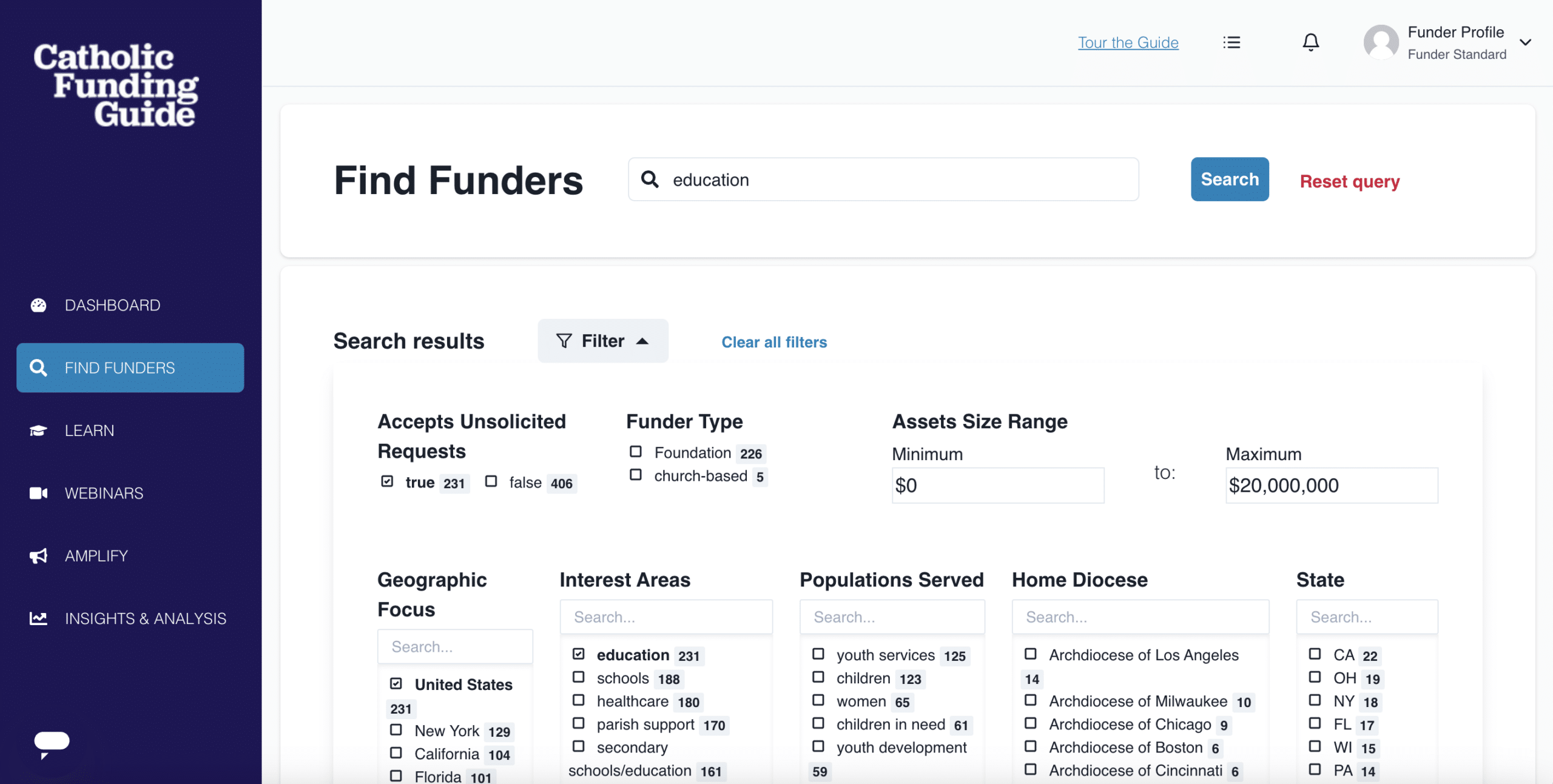Why Is It Important to Build a Relationship with Grantees?
“…whoever wishes to be great among you shall be your servant…Just so, the Son of Man did not come to be served but to serve…” (Matthew 20:25-28)
The relationship between grantees and funders is, in a way, symbiotic. Both strive to do good; both need each other to do good. However, this relationship between those who give and those who receive can be strained due to many factors, such as an unbalanced power dynamic, poor communications, an expectations gap, misaligned goals, or lack of clarity, to name some examples. By viewing yourself in light of the Bible verse above—a servant to those serving your communities—you can change that, and everyone wins when you do.
A positive relationship with grantees can result in more opportunities for doing good.
Developing a true partnership with grantees can help you better understand the needs of the nonprofit. Once you understand those needs, you can help meet them in a variety of ways, including networking. You may know other organizations that are doing related work, or other philanthropists who may want to invest in their project. These network opportunities can expand the capacity of all involved to maximize their impact.
A positive relationship with grantees also upholds your reputation.
As a funder—whether you give via a foundation, DAF, or other means—your reputation is impacted by the relationships you have with those you support. Building a positive reputation in your community opens the doors to more connections, more opportunities, and ultimately, more good works.
Think about it this way. You selected the grantees, possibly at the end of a very involved screening and application process. You chose your grantees because you believed they would further your mission to make a positive impact in the world. If you enrich your relationship with these grantees, you have the potential to do even more good.
For Fruitful Grantee Relationships, First Set the Stage for Success
Great relationships with grantees don’t happen overnight; they take time and effort—and a little bit of planning. In fact, there are a few things you can do to set the stage for a fruitful relationship before you even meet grantees.
Here are some ideas:
- Keep things simple. As much as is reasonably possible, simplify your selection and application process. Make things very clear and have the information easily accessible. You may potentially miss out on great opportunities because grantees couldn’t find your information.
- Explore alternative applications. Grant writing can be very time consuming and costly for nonprofits. If it’s realistic, you could make the application process less burdensome while still requesting the necessary information. You could even request a brief initial application or letter of inquiry to pre-screen for compatibility before they begin a more extensive grant application.
- Be very clear about your mission and funding requirements. Think of this as a pre-screening tool! You can save grant writers from spending hours writing a proposal if it’s not a good fit; and you can save yourself or your team valuable time from looking through irrelevant proposals.
- Keep the lines of communication open, even with grants you decline. It’s rarely a good idea to burn a bridge when declining a grant. Not only could your reputation be damaged, but you may miss out on a future project that you would want to support.
- Check your mindset. How do you view the relationship with grantees? As a partnership? From a place of power? The latter perspective can be damaging to grantees who instinctively grow to fear you rather than trust you.
Tip: Nonprofit organizations often have limited resources. The grant management lifecycle can be burdensome, as can reporting. If you set up an easier, more intuitive process, your efforts will not go unnoticed.
Ways to Develop Fruitful Grantee Relationships
Here are some things you can do to cultivate great relationships with grantees, focusing on clarity, understanding, and trust.
Communication Is Key
Always provide feedback and follow up on final reports, progress, questions, etc. Many grantees actually desire feedback from funders. They want to know you are invested and involved. They want to discuss reporting and updates with you and show you what impact your funds are making. It’s frustrating when they send a report and never hear back, or try to initiate a conversation or ask a question, only to be ignored.
Your relationship with grantees will be strengthened if you make an effort.
In addition, offering feedback to prospective and current grantees can help improve their proposals and help them better understand your mission and how your goals can align. If you take this route, prospective grantees who are not a good fit may be able to articulate your mission to those whose programs more closely match your needs.
Ask for feedback from grant recipients; then listen, and follow up. Not only should you give feedback; you should ask for it, as well. Opening the lines of communication is beneficial in so many ways. For example, asking for their perspective shows your grantees that you care about them and their experience, and that you want to make the funding process a positive one for all parties involved. Your grantees will be glad to have their voices heard.
If you don’t think grantees will really tell you what’s on their minds, you can send an anonymous survey, so they feel more comfortable speaking freely.
Be transparent and honest about expectations around your grant. Once you let a nonprofit know that they will be awarded the grant, clarify any restrictions, expectations, and time frame so that there are no surprises along the way.
Mindset Is Also Key
Treat grant recipients as partners. First and foremost, thank them for all they do. Introduce them to other funders who may be interested in their work. Always speak to them as equals. In general, apply the golden rule here, putting yourself in their shoes.
Respect areas where they are the experts. Some funders may be over eager to share their opinions and expertise, whether or not the situation calls for it. Stepping back and allowing grantees to lead where they are experts—for example, in their line of work—is a sign of respect, and will encourage them to return the gesture in situations that require your expertise.
Get Creative
Explore different ways to give to make a greater impact. Multiyear operating support or impact investing are two examples. Listening to feedback from your grantees, either from surveys or one-on-one conversations, can generate ideas as well.
For more ideas on how to grow your impact, subscribe to the Catholic Funding Guide’s newsletter for insights and updates on trends in Catholic philanthropy. Learning from the work of other funders can spark creativity and inform your decisions.
Ask what they need beyond money. Maybe you know people who would be willing to volunteer; maybe you know someone who could recruit staff members. Maybe you could help the nonprofit make connections in the community that they wouldn’t otherwise be able to make.
Asking this simple question gives you varied opportunities to help and affords you deeper insight into the organization you are supporting (as well as the cause you both care about). It also shows the nonprofit how deeply you are invested in your shared mission.
Roadblocks to Developing the Relationship
Many funders, such as foundations with few staff members and hundreds of grantees, or busy DAF holders, don’t always have time or bandwidth to develop deep relationships with grantees. At the same time, this is worth the effort and should not be benched indefinitely. Even small gestures can go a long way.
Do the best you can. Your efforts don’t have to be elaborate; they just need to be purposeful and sincere.
Learn how the Catholic Funding Guide can help you find your next project to fund.


